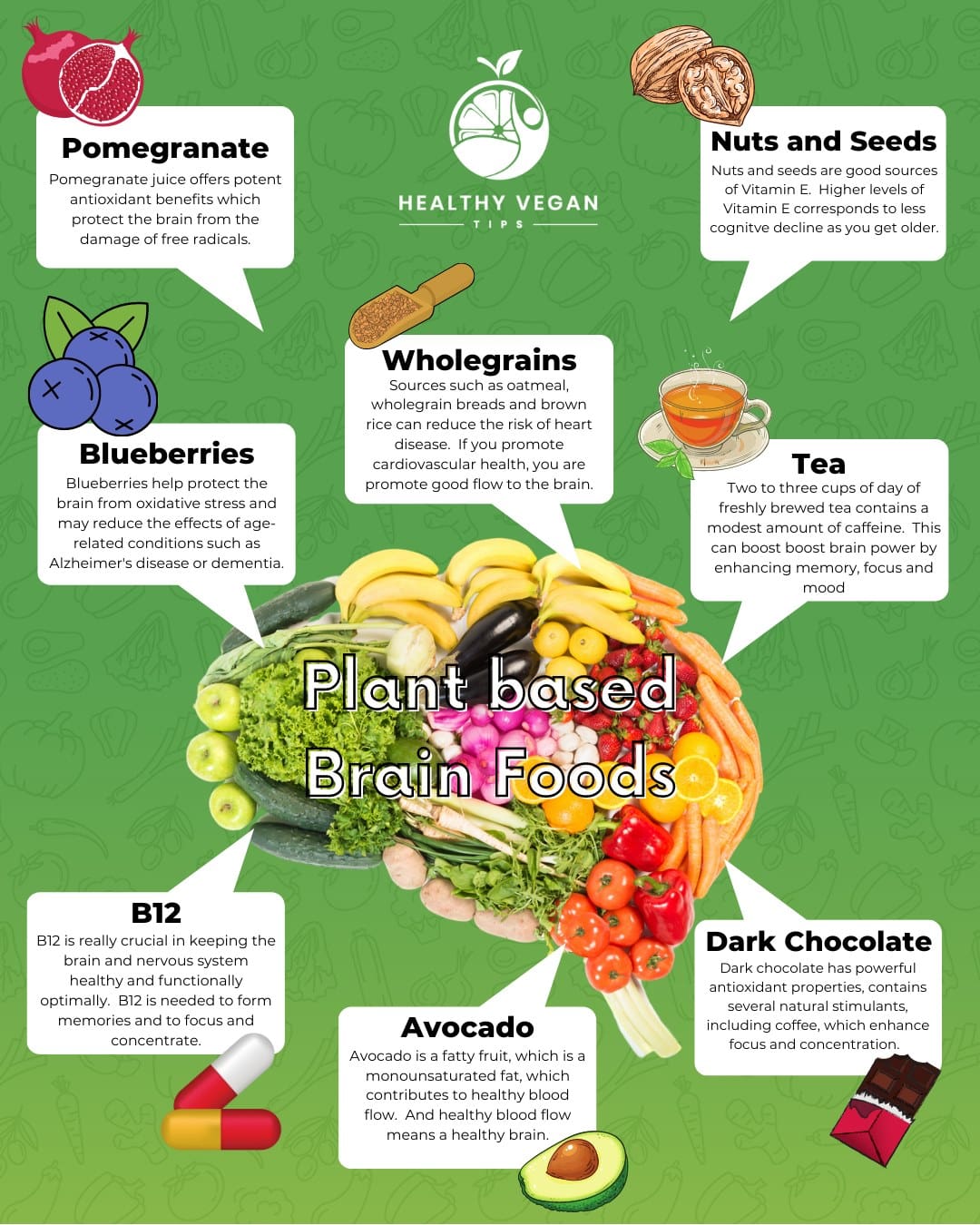When it comes to making dietary choices, there are a plethora of options available. However, in recent years, there has been a growing trend towards plant-based diets. With concerns about health, the environment, and animal welfare on the rise, many individuals are opting for a diet that focuses on consuming fruits, vegetables, grains, and legumes while limiting or eliminating animal products. While this may seem like a straightforward choice, the decision to adopt a plant-based diet also raises important ethical considerations. As with any lifestyle change, it is crucial to carefully consider the ethical implications of our dietary choices. In this article, we will explore the ethical considerations involved in choosing a plant-based diet. We will examine the impact of this dietary shift on the environment, animal welfare, and our own health. Furthermore, we will also discuss potential challenges and limitations of a plant-based diet from an ethical standpoint. By acknowledging these ethical considerations, we can make informed and conscientious decisions about our dietary choices and their impact on ourselves and the world around us.
Health benefits of plant-based diets
Adopting a plant-based diet brings along a multitude of health benefits that have been extensively studied and documented. Firstly, plant-based diets are typically abundant in essential nutrients such as vitamins, minerals, and antioxidants, which are crucial for maintaining optimal health and reducing the risk of chronic diseases. Research has shown that individuals who follow plant-based diets tend to have lower body mass indexes (BMIs), lower cholesterol levels, and reduced blood pressure, decreasing the likelihood of developing conditions like obesity, heart disease, and hypertension. Moreover, plant-based diets have been associated with a reduced risk of certain types of cancer, including colorectal and prostate cancer. By prioritizing fruits, vegetables, whole grains, legumes, and nuts, individuals can enhance their overall well-being and longevity while reaping the numerous health rewards that come with a plant-based lifestyle.

Environmental impact of meat consumption
The environmental impact of meat consumption is a topic of growing concern in today’s society. The production of meat, particularly beef, generates a significant amount of greenhouse gas emissions, contributing to climate change. Livestock farming requires vast amounts of land for grazing and growing feed crops, leading to deforestation and habitat destruction. Additionally, the intensive use of water and chemicals in animal agriculture contributes to water pollution and scarcity. The excessive consumption of meat also places a strain on natural resources, such as energy and fossil fuels, used for transportation and processing. These environmental consequences highlight the need for individuals to consider the impact of their dietary choices and explore alternatives, such as adopting a plant-based diet, to reduce their ecological footprint and promote a more sustainable future.
Animal welfare and ethical concerns
The welfare and ethical treatment of animals is another crucial consideration when choosing a plant-based diet. Factory farming, which is the predominant method of animal agriculture, often prioritizes profit over the well-being of animals. Animals raised in cramped and overcrowded conditions, deprived of natural behaviors and proper veterinary care, can suffer from physical and psychological distress. In addition, common practices such as debeaking, tail docking, and castration without anesthesia can cause unnecessary pain and harm to animals. Choosing a plant-based diet helps to decrease demand for products derived from factory farming, thus promoting a more compassionate approach towards animals and supporting initiatives that prioritize their welfare. By making conscious choices about our food consumption, we can contribute to a more ethical and humane treatment of animals in the agricultural industry.

Navigating cultural and social pressures
When considering a plant-based diet, it is important to navigate the cultural and social pressures that may arise. Choosing a diet that deviates from the norm can sometimes lead to criticism or misunderstandings from friends, family, and society at large. It is essential to approach these situations with patience and understanding, as people’s beliefs and attitudes towards dietary choices can vary greatly. Engaging in open and respectful conversations can help educate others about the reasons behind your decision and dispel any misconceptions. Surrounding yourself with a supportive community, whether it be through online forums, local meet-ups, or support groups, can also provide a sense of belonging and encouragement. Remember that staying true to your values and prioritizing your own health and ethical considerations is a personal choice, and it is important to remain confident in your decision despite any external pressures. Navigating cultural and social pressures is an ongoing journey, but with resilience and a commitment to your principles, it can ultimately lead to a more fulfilling and authentic lifestyle.
Ensuring balanced nutrition in transition
When transitioning to a plant-based diet, ensuring balanced nutrition is crucial to maintaining good health. It is essential to understand that a plant-based diet can provide all the necessary nutrients, but attention must be given to proper planning and food choices. Incorporating a variety of fruits, vegetables, whole grains, legumes, nuts, and seeds can help meet the body’s nutritional needs. It is important to focus on getting an adequate intake of protein, iron, calcium, vitamin B12, and omega-3 fatty acids, which are commonly found in animal-based foods. These nutrients can be obtained from plant-based sources such as tofu, tempeh, legumes, leafy greens, fortified plant-based milk, and flaxseeds. Consulting with a registered dietitian can be beneficial during the transition process to ensure a well-balanced and nutrient-rich plant-based diet. Monitoring nutrient intake, while also paying attention to portion sizes, can help promote optimal health and wellness.

Sourcing sustainable and local produce
In addition to considering the nutritional aspects of a plant-based diet, ethical considerations also extend to the sourcing of produce. Sourcing sustainable and local produce is an important aspect of adopting a plant-based lifestyle. By choosing fruits and vegetables that are locally grown, we can reduce the carbon footprint associated with long-distance transportation and support local farmers. Additionally, opting for organic produce reduces exposure to harmful pesticides and promotes environmental sustainability. By prioritizing sustainable and local produce, individuals can contribute to the preservation of ecosystems and protect the well-being of farm workers. Embracing these ethical considerations not only aligns with the principles of a plant-based diet but also promotes a more sustainable and environmentally conscious way of living.
Supporting plant-based businesses and farmers
Supporting plant-based businesses and farmers is another important ethical consideration when choosing a plant-based diet. By prioritizing products and services from plant-based businesses, individuals can contribute to the growth and success of these enterprises, fostering a more sustainable and compassionate economy. Plant-based businesses often prioritize ethical sourcing and production practices, ensuring that their products are cruelty-free and environmentally friendly. Additionally, by supporting local plant-based farmers, consumers can help create a more resilient and diverse food system, reducing dependency on large-scale industrial agriculture. By consciously choosing to support plant-based businesses and farmers, individuals not only promote ethical values but also contribute to the overall well-being of animals, the environment, and local communities.
Prioritizing personal values and ethics
When it comes to prioritizing personal values and ethics in choosing a plant-based diet, individuals have the opportunity to align their dietary choices with their core beliefs. Ethical considerations encompass a range of factors, including animal welfare, environmental sustainability, and personal health. By embracing a plant-based lifestyle, individuals can actively demonstrate their commitment to compassion and respect for all living beings, contributing to the reduction of animal suffering and exploitation. Moreover, choosing a plant-based diet can be a powerful way to minimize our ecological footprint, as animal agriculture is a significant contributor to greenhouse gas emissions, deforestation, and water pollution. By making conscious choices based on personal values and ethics, individuals can not only nourish their bodies but also contribute to a more compassionate and sustainable world.
As we have discussed, choosing a plant-based diet involves more than just personal health and environmental factors. It also raises important ethical considerations such as animal welfare and global food inequality. By being mindful of these factors and incorporating them into our decision-making, we can make more informed and ethical choices when it comes to our food consumption. Whether you are already following a plant-based diet or considering making the switch, it is important to continue exploring and educating ourselves on the various complexities and impacts of our food choices. Together, we can work towards a more sustainable and ethical food system for all.
FAQ
What are the ethical considerations involved in choosing a plant-based diet?
Choosing a plant-based diet involves ethical considerations such as reducing animal suffering, promoting environmental sustainability, and improving personal health. By avoiding the consumption of animal products, individuals can contribute to reducing the demand for factory farming and the associated cruelty towards animals. Plant-based diets also have a lower environmental impact, as they require less land, water, and produce fewer greenhouse gas emissions compared to animal-based diets. Additionally, plant-based diets have been linked to numerous health benefits, including a reduced risk of chronic diseases. Overall, adopting a plant-based diet aligns with ethical values of compassion, sustainability, and personal well-being.
How does the consumption of animal products impact animal welfare and ethical treatment?
The consumption of animal products has a significant negative impact on animal welfare and ethical treatment. Animals raised for food are often subjected to inhumane conditions, such as overcrowding, lack of access to natural behaviors, and unnecessary confinement. They may also be subjected to painful procedures, such as debeaking or dehorning, without anesthesia. The demand for animal products drives the need for intensive farming practices, which prioritize profit over animal welfare. Additionally, the mass production of animal products contributes to environmental degradation and climate change. Choosing plant-based alternatives and supporting more humane farming practices can help reduce the negative impact on animal welfare and ethical treatment.
Are there any ethical concerns related to the environmental impact of animal agriculture versus plant-based diets?
Yes, there are ethical concerns related to the environmental impact of animal agriculture compared to plant-based diets. Animal agriculture is a major contributor to deforestation, greenhouse gas emissions, water pollution, and biodiversity loss. It also requires large amounts of land, water, and resources, which could be used more efficiently to feed a growing global population. Additionally, the conditions in which animals are often raised in factory farms raise concerns about animal welfare. Plant-based diets have a significantly lower environmental impact and can help reduce these ethical concerns by promoting sustainability, conservation, and the welfare of animals.
How do ethical considerations play a role in the decision to choose plant-based alternatives over animal products?
Ethical considerations play a significant role in the decision to choose plant-based alternatives over animal products. Many individuals are concerned about the ethical treatment of animals and the environmental impact of animal agriculture. By opting for plant-based alternatives, they can support a more compassionate and sustainable food system. Choosing plant-based alternatives aligns with ethical values of promoting animal welfare, reducing animal suffering, and mitigating environmental harm caused by the meat industry.
What are some potential ethical dilemmas that individuals may face when transitioning to a plant-based diet, and how can they be addressed?
Some potential ethical dilemmas individuals may face when transitioning to a plant-based diet include the concern of nutrient deficiencies, social pressures, and the impact on local economies. These dilemmas can be addressed by educating oneself about proper nutrition, seeking support from like-minded individuals or communities, and supporting local farmers and businesses through ethical consumer choices. Additionally, individuals can engage in open dialogue with friends and family to explain their reasons for transitioning to a plant-based diet and find ways to accommodate social situations without compromising their ethical values.















































